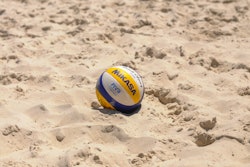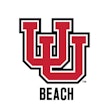On Tuesday, the state of California moved closer to allowing collegiate-level student-athletes to profit from the use of their names, images and likenesses as the Fair Pay to Play Act was passed out of committee by a unanimous vote.
The bill, which would prohibit any penalties aimed at student-athletes who are able to secure compensation for themselves through the use of their names, images or likenesses, could shift the landscape of college sports — upending the longstanding definition of amateurism as defined by the NCAA. Current rules on the books prohibit student-athletes from profiting from such things as local sponsorships or apparel sales.
The Orange County Register reports that the California state senate has already passed an identical bill. The next step in the process will be for the Assembly’s Appropriations Committee to hear it in August. If that committee votes the bill out, it’ll head to the full Assembly for a final vote before being sent to the Governor.
The NCAA as an organization is wary of the legislation, and president Mark Emmert warned in a letter last month about what he called “unintended consequences” of the bill. Some committee members were concerned about the possibility of California’s schools being blocked from participating in NCAA member events, for example. However, the Register reports that attorney Marc Edelman, a sports law expert, told members at Tuesday’s hearing that a move by the NCAA to block California schools based on the bill could be a violation of antitrust law.
Some representatives of colleges and universities in the state also had reservations. However, those concerns were met by lawmakers with claims that the bill should advance in order to drive the conversation and prevent the NCAA from dragging its feet.
“The NCAA is going to move as slow as it wants to move,” said Assembly member Marc Levine. “Whether this bill becomes law is almost secondary to the fact that we need to coax this conversation further than it ever has been.”
Meanwhile, Russell Okung, a former student-athlete at Oklahoma State and current member of the Los Angeles Chargers, spoke out in favor of the bill. In a piece published on The Players’ Tribune, Okung describes his time at school where his inability to profit from his own name and likeness combined with the likelihood of him receiving a multimillion dollar contract upon going pro made him a target for predatory lenders.
“If my peers and I had been compensated for the revenue generated from the use of our names and images during our college careers, we would’ve been in a better position to control our financial futures,” Okung writes.
If enacted, the Fair Pay to Play Act wouldn’t go into effect until at 2023, which would allow a period of time for both the state and the NCAA to adjust to the new state of play.





































